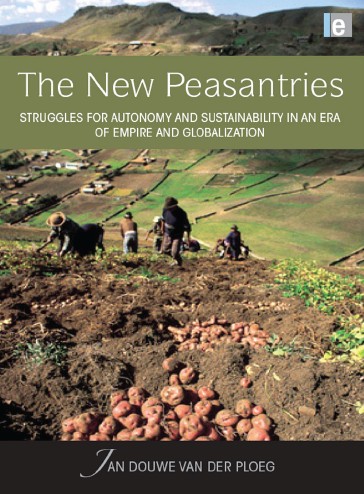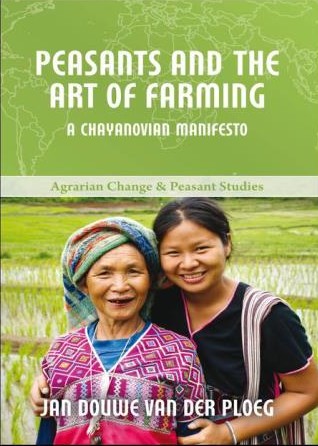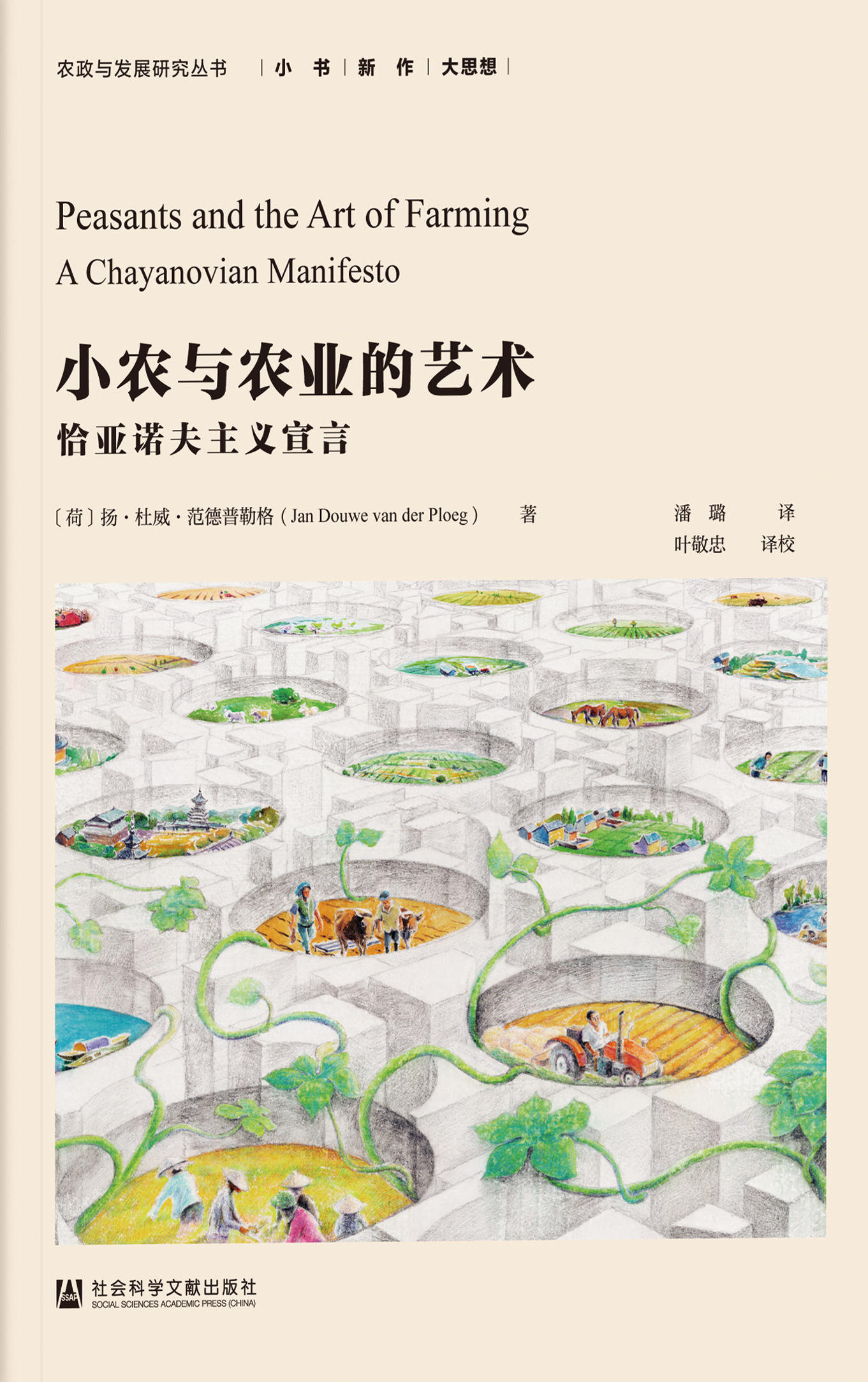THE DANGERS OF BIO-ENERGY
The dangers of bio-energy and other fictions surrounding the food crisesJan Douwe van der Ploeg*
Do not disturb the market –is a phrase you often hear when the food crisis is being analyzed. However, the destabilizing role played by giant food empires is generally ignored. Rising food prices, new relationships of scarcity and food riots have given rise to a hype in which diagnoses tumble over each other. Everyone appears to agree, however, that the market should not be disturbed despite the fact that international agricultural markets are in a permanent state of disruption. In this hype bio-energy is the villain and represents hunger, food riots, high prices, inflation, new limitations on trade, the deforestation of the Amazon and a great deal of ethical consternation. Bio-energy is suddenly “not proper”. It steals food - as it were - from the plates of the poor. Such conclusions are only partly correct – and very partly at that. However, they are comfortable conclusions. When they take root explanations for the real drama are no longer necessary.
At most only 2% of the world’s total agricultural area is used for bio-energy. This cannot possibly explain the current general boom in prices. And bio-energy is certainly not a new phenomenon. For decades, Brazil, for example, has been cultivating sugar cane to make the ethanol that is compulsorily added to petrol. In fact agriculture has been producing food as well as so-called non-food products for centuries. If we find bio-energy scandalous then we should also – retrospectively - seriously condemn the cultivation of cotton, for example. Or - worse still - the planting of fodder crops to feed cart horses. In many parts of the world this continues to be the way agriculture produces much of the energy it needs. The same applies to hunger. Suddenly this has become a scandal. The real scandal is, of course, that ten years ago there were already 850 million hungry people in the world and despite all the rhetoric that figure has not changed. Hypes are never hindered by memory.
Taken from the perspective of the growing importance of bio-energy, it is obvious that there will be an upward pressure on the price of those crops needed to produce it. However, this pressure is only one of many factors involved. Just as important is the serious depletion in the amount of stored grain. World wide this has declined in recent years and has now reached unacceptably low levels. Relatively weak disturbances can, therefore, have considerable repercussions. Also the absence of second generation technologies to convert residues into bio-energy plays a significant role, the worldwide collapse of political buffers regulating agriculture and new waves of speculation are important additional factors. We have here the ingredients of an explosive situation that translates itself into a number of worrying phenomena.
Given this complex background, it is extremely simplistic to identify bio-energy as the black sheep. But – once again- it’s a comfortable explanation. It enables those like the English Prime Minister Gordon Brown - and in his wake many other - to identify bio-energy as the great evil and keep quiet about the effects of the neo-liberal reorganization of agricultural production and the food market – a reorganization that in the England of Thatcher, Blair and Brown had a particularly deep impact - and probably resulted in such charms as mad cow disease. There is also another advantage in pointing the guilty finger at bio-energy. It means that others – elsewhere – have to do something about the problem (for example, it is Lula in Brazil who should make an about turn). Europe, apparently, is not to blame.
Experts uttering ritual incantations line up with those raising the alarm. They mouth the same truths they always do when something goes wrong. They are ritual: they are uttered irrespective of the precise nature of the problem and serve a goal that is entirely different from what is being said. In essence these “truths” can be summarized as follows: there is a potential to produce more than is needed if enough money is made available for agricultural research. Or – a cliché put forward in the Dutch debate – if we allow the cultivation of genetically modified crops everything will be alright.
It is true that at world level there is enormous potential for increased agricultural production (including the production of bio-energy). The drama lies, however, in the fact that our endeavors to augment production constantly trigger other factors that work against the objective of increased production. What is built up on one side is destroyed on the other.
These factors are the neglect and associated marginalization of farmer agriculture, the centrality attributed to the world market and the emergence of new food empires. If these three elements are seriously taken into account then it is clear that things will not simply turn out alright. Quite the opposite – the situation will only get worse.
First farmer agriculture - sadly no redundant phrase because in addition to the classic agriculture carried out by farmers many new sorts of agricultural activity have emerged. Entrepreneurship is usually the key word here. Entrepreneurial agriculture is agriculture that is strongly market orientated and is characterized by continual expansion, often financed by loans and made possible by new technologies. In this way impressive looking agricultural enterprises have come into being.
However, impressions can be misleading. Large enterprises sometimes replace hundreds of smaller ones that together produced more. Mexico currently provides dramatic examples of this process. Large, extensive cattle enterprises let big herds loose without paying much attention to what happens next. They have taken the place of smaller farms that – although smaller in scale but far more intensive – delivered relatively more produce. As a result of this shift the productive value per hectare of ground has dropped from around 4000 pesos per hectare to a miserable 500 pesos and the region is descending into poverty.
The same happened in Ecuador with potato production. In the name of progress classic and sustainable practices were replaced by new technological packages that proved not only less productive but also required much more pesticide. As in Mexico, entrepreneurial agriculture has ousted farmer agriculture and the outcome has been a slowdown, if not a regression in food production.
Similar tendencies have been documented in Europe. The productive life of a cow is now shorter than ever before. The efficiency of artificial fertilizers has declined drastically over the years. These are all forms of counter productivity that undermine or even negate any progress made.
There is another point that should be made here. Because entrepreneurial agriculture is so strongly market orientated we see a significant and entirely new phenomenon. When low prices dominate large enterprises close down business. This has never occurred in farmer agriculture which - despite problems - has been ensuring food security for centuries. Those who have traveled through South America, Africa and Asia know the phenomena of empty chicken runs and pig styes. They bear witness to how the stability of food production is being threatened from within. It is a phenomenon that - although less visible - is also evident in Europe. The stability of farmer agriculture which is inextricably linked to the continuity of food supply has deteriorated rapidly since the mid-1990s.
Since then the neo-liberal food regime has become increasingly dominant with the world market as its main organizing principal. Considered realistically this is odd in a world where - even today - only 15% of total world food production actually crosses a national border to become part of the assumed world market. In fact most food is consumed not far from where it is produced.
With the neo-liberal project - and the dismantling of the political systems within which agriculture was regulated - attempts have been made to subject all flows – particularly local ones – to one and the same price regime and especially to new centers of power.
At the same time new circuits are emerging that connect centers of poverty to places of wealth. The asparagus destined for North-Western European markets, for example, is increasingly being produced in the deserts along the Peruvian coast. That water in the area is scarce does not make any difference. The precious water – wrapped up in asparagus – is simply exported. This is possible because – in Peru - land and labour are very cheap.
A world market and world trade that is being structured with the help of the neo-liberal fiction cannot but lead to ecological disorder, wasted energy and permanent turbulence. Turbulence such as we are currently experiencing and which gives rise to unexpected side effects including temporary shortages and abrupt price rises.
In the 1950s, Polayni warned that handing over the fate of land and people to market forces was equivalent to annihilating both. This is precisely what we are seeing now. With the emergence of neo-liberalism, new food empires have come into being. These are networks that operate worldwide and which exert increasing control over the production, processing, distribution and consumption of food products.
Because of the way these networks work – and their growing monopolistic power - the gap between the price the consumer pays and the money the farmer receives has increased in an enormous and often incomprehensible way.
In many European countries added value in the food industry has grown more in the last 25 years than in any other industrial sector. The food industry has, in fact, become so attractive that even chemical concerns have decided to shift their activities.
Food empires represent extraordinary power and this has clearly grown in the neo-liberal framework. For farmers they are now an unavoidable sales outlet and for many consumers they provide the necessary access to food.
Until recently food production in many parts of the world lay in the public domain of innumerable small producers and a controlling government. In recent years this public domain has been rapidly privatized. The provision of food is now a playing field for new empires who will – if necessary – use extra economic power to influence the market to their advantage.
A few years ago we witnessed the collapse of Parmalat and the near collapse of the Ahold group, two important food empires. These episodes not only showed that the new food giants sometimes have feet of clay (which contributes to the fragility of the system as a whole), they also made clear that the main aim of their aggressive quest is to achieve a high and rapidly increasing cash flow.
Given these new realities, a recent essay of Harriet Friedmann – a recognized expert in the field of international food regimes - is both correct and chilling. The world’s agriculture is no longer primarily concerned with feeding the world’s population but – as the title of her essay suggests – with feeding the empires.
The marginalization of farmer agriculture, the neo-liberal project and the rise of food empires are the coordinates of a world in which scarcity and over-abundance, hunger and obesity and the competition for and squandering of scarce resources occur simultaneously. Indeed it doesn’t get any better. In principal the potential of bio-energy could have led to a favourable strengthening of agriculture especially in the Third World. Given the present coordinates, however, agriculture continues to weaken. Still it is good to remember that we have alternatives within hands reach. Essentially these revolve around stimulating farmer-based agriculture, the implementation of an intelligent agricultural policy and - above all - a fair and durable structuring of international trade. It is also possible to adopt a sensible approach to the much maligned bio-energy. There are more efficient and attractive solutions than the imperial schemes that currently determine how it is produced. These include, for example, a decentralized and flexible system of on-farm energy production involving either individual or groups of farms.
The key here is to make use of waste and by-products. But because of the hype nobody talks about these concrete alternatives. The sad irony is that the main message continues to be “beware of disturbing the market”. Third World countries that restrict their exports or - as Argentina is doing at the moment - put extra taxes on them in order to ensure the food security of their own people, are seen as disturbing the market. Stimulating the decentralized production of bio-energy is seen as disturbing the market as well. Those who make these claims are actually saying that the market is there for the exclusive benefit of the new empires. The food empires do not want their market to be disturbed.
--------------
* The author is professor of transition studies at Wageningen University in the Netherlands. He recently published “The New Peasantries: Struggles for Autonomy and Sustainability in an Era of Empire and Globalization” (Earthscan, London). This article was previously published in NRC Handelsblad in the Netherlands; it has been translated by Marilyn Minderhoud-Jones.






NEW
Jan Douwe van der Ploeg
Formerly Professor and Chair of Rural Sociology and Emeritus professor of Transition Studies at Wageningen University (WUR), the Netherlands and Adjunct Professor of Rural Sociology at the College of Humanities and Development Studies (COHD) of China Agricultural University (CAU) in Beijing, China.
e-mail: clic here
Jan Douwe van der Ploeg
Formerly Professor and Chair of Rural Sociology and Emeritus professor of Transition Studies at Wageningen University (WUR), the Netherlands and Adjunct Professor of Rural Sociology at the College of Humanities and Development Studies (COHD) of China Agricultural University (CAU) in Beijing, China.
e-mail: clic here